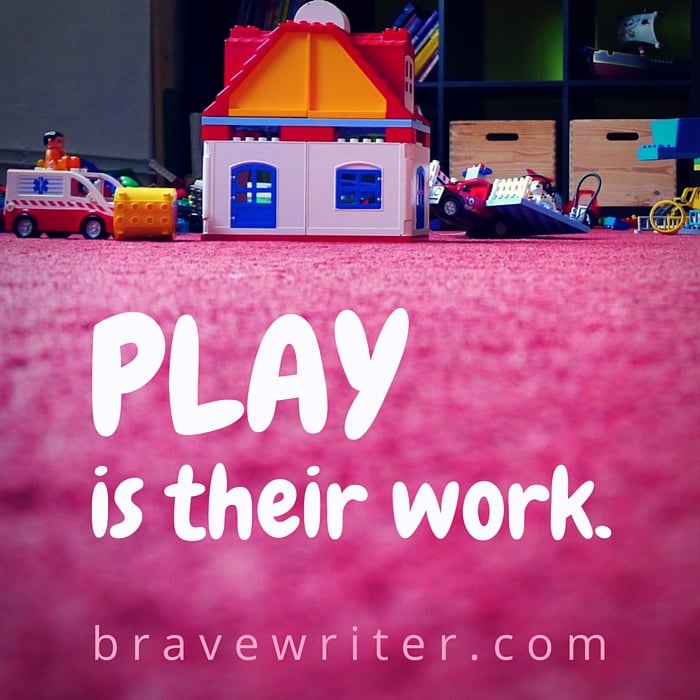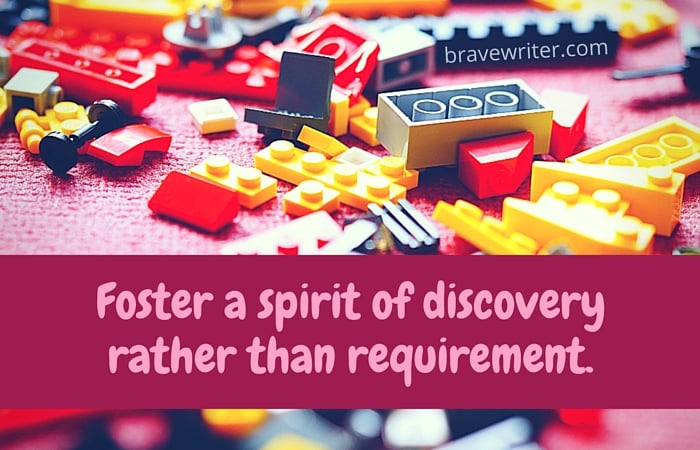Learning Through Play

A Brave Writer parent asked this question on the BraveScopes group:
I get that “play is their work” but how and when do we
start to transition to at least some “schooling?”
Ask yourself what it is you hope “schooling” accomplishes that is not currently being accomplished by play? Is it possible to teach reading through play? Writing through play? Math through play?
And when I say “play,” I mean the spirit of curiosity, engagement, and excitement that play gives children. Everything they are doing touches on the very subject areas you care about. You can get there through what they are already doing, and you can entice participation in the areas you think require more structure through a spirit of play with those materials!
Entice participation in the areas you think require
more structure through a spirit of play.
What if you played with the handwriting book under the table, using a flashlight? What if you doodled pictures for her to find as she completed math problems? I know you don’t want to do these all the time—but if you come from a spirit of discovery rather than requirement, you may find yourself seeing learning opportunities right now that you are missing.
Don’t look for openness. Focus instead on parallel play. In other words:
- make observations in his presence,
- talk about what is fascinating about language,
- try out the pencils and pages in the book,
- or leave some math manipulatives out to be discovered.
It’s tempting to “play school” because that’s what we remember.

For example, in her presence in the morning, simply get up from the floor where the two of you were playing, and silently begin writing at the table with a big variety of utensils. You might even start by writing her name on the windows with window markers, or making cookies that look like the alphabet and then playing with the letters and putting them into arrangements that are words.
Perhaps while she is playing, you sit nearby and simply begin reading aloud in her presence and see if she is enchanted or interested or simply absorbing what you read.
You don’t need to “teach.” You want to simply include in your day conversation and activity that points to the tools he will need for his life, a little at a time.


















